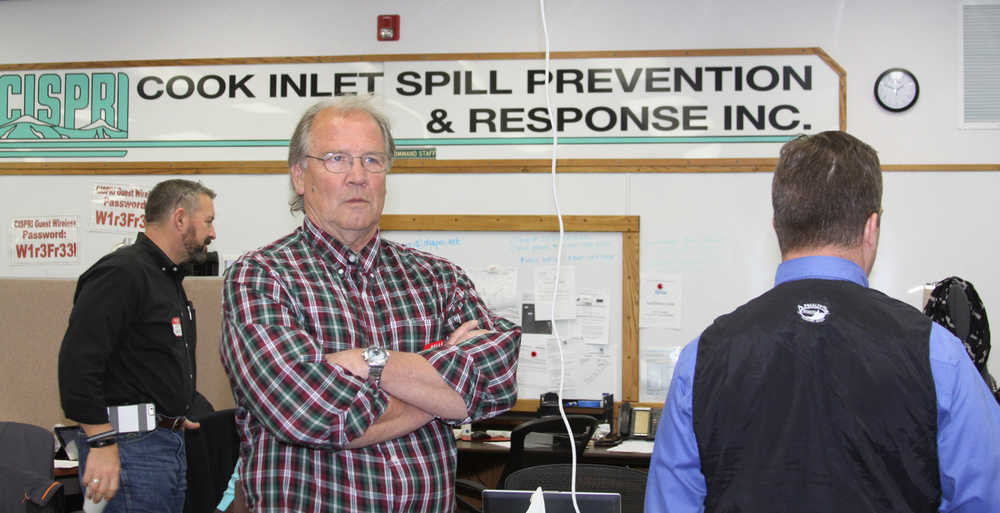While folks were preparing their barbeque grill for Memorial Day celebrations, Tesoro and CISPRI (Cook Inlet Spill Response Inc.) were preparing and testing equipment and response technology in case of a worst case scenario spill event. With all Team Tesoro hands on deck at the federally and state mandated spill drill Thursday, May 21st at the CISPRI headquarters in Nikiski, Eric Haugstad Director of Emergency Planning and Contingency Response for Tesoro, explained, “We do this not only because it’s mandated training, but because it is just good business practice to train for emergency response. This was our worst-case scenario of our Cook Inlet tanker plan. It was approximately a 210,000-barrel spill caused due to hypothetical collision with one of our crude oil carriers in the Inlet, resulting in rupturing approximately 7 cargo tanks; all simulated, and discharging approximately 210,000 barrels of Cook Inlet crude to the Inlet.”
“It was a real world scenario because there’s always a chance of an incident. WE run double hull tankers that are very well built and U.S. flagged Jones Act tankers and highly inspected by the U.S. Coast Guard. But if there were to be an incident and a spill we are mandated to test and train to the worst case scenario and that’s what we’re doing today,” he said. During the drill all the latest technology was put into play and tested, “We utilized electronic oil buoys that track the currents and simulate where the oil could go, but we would also back that up with aerial observation. We do have some of the state of the art equipment in Cook Inlet at CISPRI here, we have the Norwegian current buster technology that allows you to contain oil in currents up to 5 knots where a conventional boom would entrain it at about ¾ of a knot; we’re utilizing new oil technology skimmers which pick up 94% of the oil and a little bit of water where the weir skimmers pick up a lot more water, so the industry has made a lot of changes to make this a very proactive and high-technology co-op” explained Haugstad.”
Preempted by two days of training before the actual drill for all parties involved, the cooperation and coordination of such a large-scale drill is always a huge undertaking. With involvement from the Coast Guard and the Tesoro environmental team were able to use their workforce to the most effective degree. Haugstad reported that there were no errors or failures resulting in this year’s drill, but stated the benefits of training is practice makes perfect and for the new employees that have arrived to fill the shoes of the those that have recently retired, “We’ve learned where we need to practice and train more. Since we have new people coming into the company, it gives them more exposure in a simulated incident. It’s better to learn under a drill than in a real-life experience so I think these drills are a great program and we always learn how to do better,” he said.

